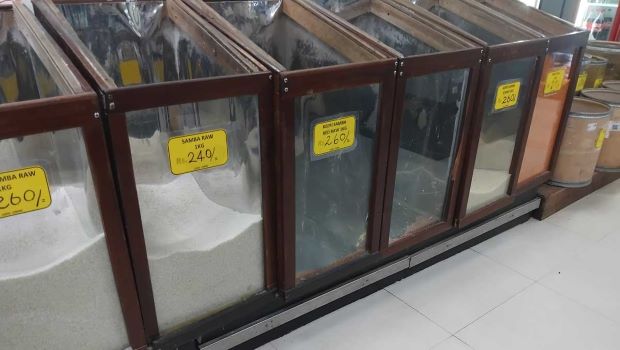Raw rice vanish from shop shelves after CAA price controls
COLOMBO – Many of Sri Lanka’s groceries are no longer selling red rice after price controls were imposed and strictly enforced by the Consumer Affairs Authority (CAA) as import controls reduced the supply of other varieties.
Sri Lanka has higher rice prices than the rest of the world due to import taxes and licensing, but rice stock runs low in December and January ahead of the main rice harvest in February.
Sri Lanka usually cuts import duties and allows imports especially in January to keep rice prices down.
However, this year, the import tax was not removed, though imports were allowed, keeping prices high. Meanwhile, authorities also accused millers, who are protected with import duties, of hoarding rice.
On top of that price controls were imposed on many varieties of rice.
“Red raw rice is not available anymore,” one trader said, adding “I could not get white rice either.”
Price controls tend to distort markets and make goods disappear from shelves, by boosting demand and reducing supply. They also create black markets.
“Until a few days ago there was keeri samba, now that also disappears fast because normal red rice is not available,” another shopkeeper said.
Keeri Samba (a type of smaller premium rice) had a price control of 260 rupees a kilo, compared to 210 for standard red rice.
When goods disappear from shelves due to price controls, consumers are more upset than if prices were simply higher.
“I wanted to buy some raw rice today,” one shopper lamented. “I take a three-wheeler with the rest of my groceries. Now I will have to come again.” Raw rice is an important ingredient for making milk rice on January 1.
Sri Lanka’s then rulers went on a frenzy of price controls on a number of goods in 2021 but abandoned them after severe shortages emerged in basic foods. The administration was eventually driven out of office.
When egg prices went up, Sri Lanka also slapped price controls and destroyed a large part of the SME layer farms.
The CAA has previously created shortages of dhal, sugar and canned fish with its price controls putting consumers in difficulty and making governments unpopular.
-economynext.com



Comments are closed, but trackbacks and pingbacks are open.